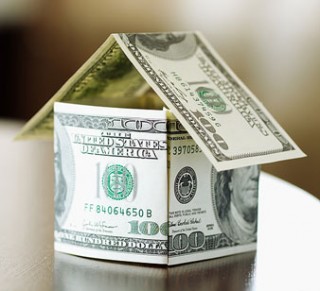I recently read a friend’s Facebook post on the topic of paying one’s mortgage off early.
His post on his FB page is below:
”I’ve heard alot of young people trying to pay down their mortgage asap. Typical advice is to only do this if you don’t think you can earn interest higher than your mortgage rate on your investments. However, given the state of the markets right now… maybe we should all be paying down our mortgages.”
Here was my response and thoughts on this important topic.
No one strategy is right for everyone. It’s not only about investing the cash you might have paid down towards the principal balance on your mortgage.
A key point to remember is that your home will go up or down in value regardless of your mortgage balance. You can store cash in your home, or outside of your home.
 What happens if you are in the process of paying down your home early the typical way, and God forbid, something bad happens? You may have just paid an extra $5,000 towards the principal with the goal of being mortgage free as soon as possible. Let’s say you did this the month before you unexpectedly lose your job. Then what? You most likely can’t get to that cash unless you sell your home. This certainly isn’t a fast solution.
What happens if you are in the process of paying down your home early the typical way, and God forbid, something bad happens? You may have just paid an extra $5,000 towards the principal with the goal of being mortgage free as soon as possible. Let’s say you did this the month before you unexpectedly lose your job. Then what? You most likely can’t get to that cash unless you sell your home. This certainly isn’t a fast solution.
Think of home equity from an investment perspective. (Remember you home will go up in down in value, no matter what you owe on your mortgage). If I were to tell you there is an investment that has a minimum monthly contribution, you can contribute extra above and beyond every month, but if you need access to any of that cash, you can’t easily get to it. There is also no guarantee of the value of your investment. If you decide to contribute large sums above the minimum required monthly investment, you still may see it go down in value. Even if you recently paid an extra $5,000 into your “investment” you are still forced to contribute the minimum amount the next month. If you can’t for some reason, you are at risk of losing all of your entire investment within 90 to 120 days!!
If someone is rapidly paying off their home early and then, life happens, they now find themselves in a financial bind. At the moment one looses their job, or their income situations changes abruptly, it’s little consolation that one only has 5-years left to pay on their mortgage.
Some will say that equity has no rate of return. In the strictest sense, this is true. This thought process comes from the fact that real estate values will go up or down regardless of the mortgage balance on the property. Therefore, if your home goes up in value, your investment of home equity did not cause it to do so. However, If you are accelerating the payoff of your mortgage the traditional way, then one could look at it as their return is the equivalent of their effective percentage rate or EPR. What is your EPR? If you are currently paying 4% and you are in a marginal state and federal tax rate of 30% then your EPR would be 2.8%. This is because mortgage interest provisions in the tax code allow you to deduct any interest paid on your mortgage; therefore, once you factor in your hard earned dollars you keep instead of taxes you would have paid (had you not had a mortgage) your effective percentage rate is 2.8%. You might say that 2.8% is your return on the cash you are dumping into the home. If you take this position and believe that home quity does have a rate of return then you need to consider all of the facts. Over time, when you factor in the cost of home maintence, repairs and real estate commissions, your return more often than not is a negative one. This can easily be proven with math. This doesn’t even take into consideration if the home actually goes down in value while you own it.
Your mortgage is one of the most powerful financial tools that you have at your disposal. The way you manage your mortgage is crucial. Next to taxes, your mortgage is the largest wealth transfer. Before paying off your mortgage the traditional way (dumping cash directly into the home), you must take into consideration opportunity cost. If you are paying those extra dollars directly towards the principal of your home, then yes it is true, you no longer are transferring the 2.8% (example above) to the financial institution; however, you have failed to account for opportunity cost. What is opportunity cost? Simply stated, if you pay $5,000 directly towards the principal of your home, you do save the 2.8% you were transferring away; however, you also give up the ability to earn compounding interest on your money. It is imparative to understand the fundamental difference between compounding and amortizing interest. Lastly, you must take into consideration leverage and having complete liquidity use and control of your money.
Your House is probably the largest personal investment you will ever make. How you decide to pay for it can create unnecessary wealth transfers.
In summary, a proper mortgage plan will allow you to not only pay off your mortgage early while maintianing liquidity, but also recapture all the interest you are currently needlessly paying. By identifying money that you are currently transferring away unknowingly and unnecessarily, you can typically accomplish this without having to spend any more money than you are already spending. In other words, you don’t have to reduce your lifestyle to make the plan work! It is true by paying off your mortgage early you will save tens of thousands of dollars in interest; however, if you fail to understand the fundamental rules of money such as opportunity cost, then you will miss out on recapturing all of that interest you would have paid in a tax free account that you have complete liquidity use and control of TODAY.
